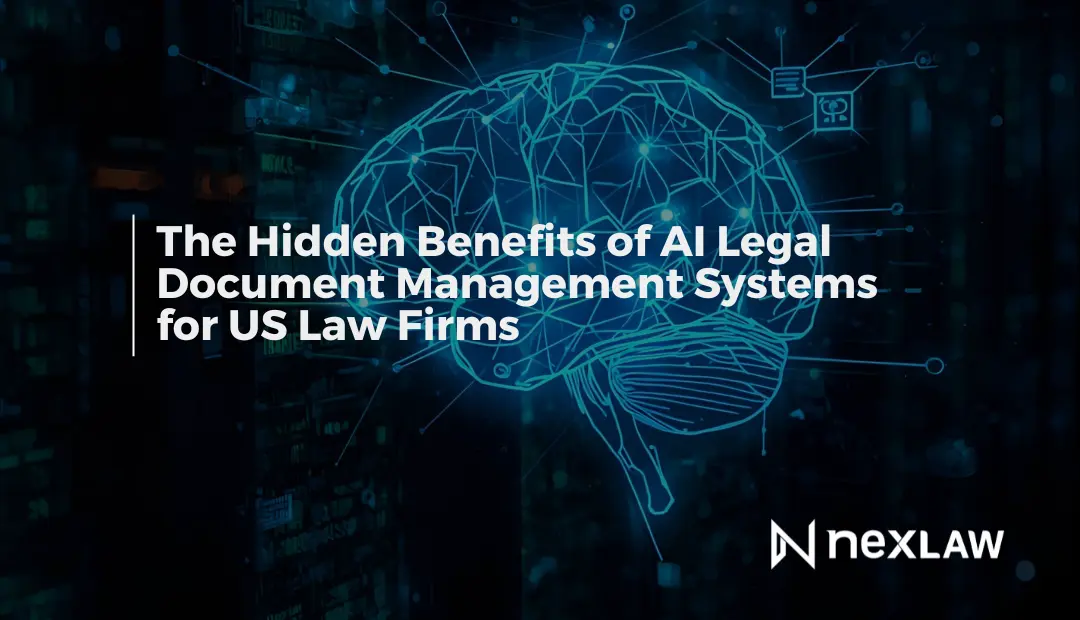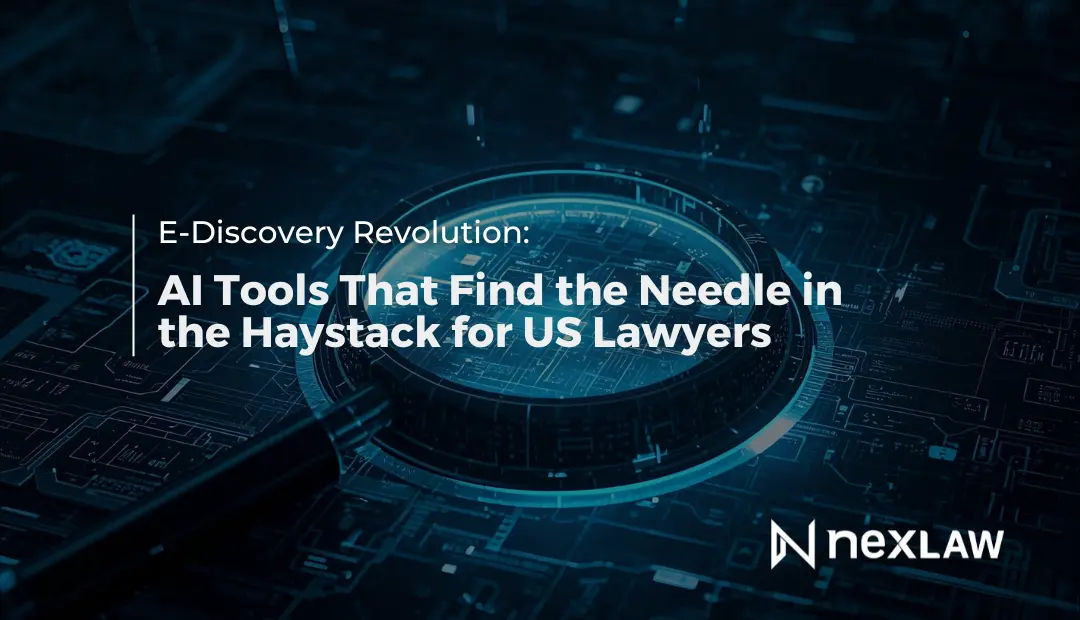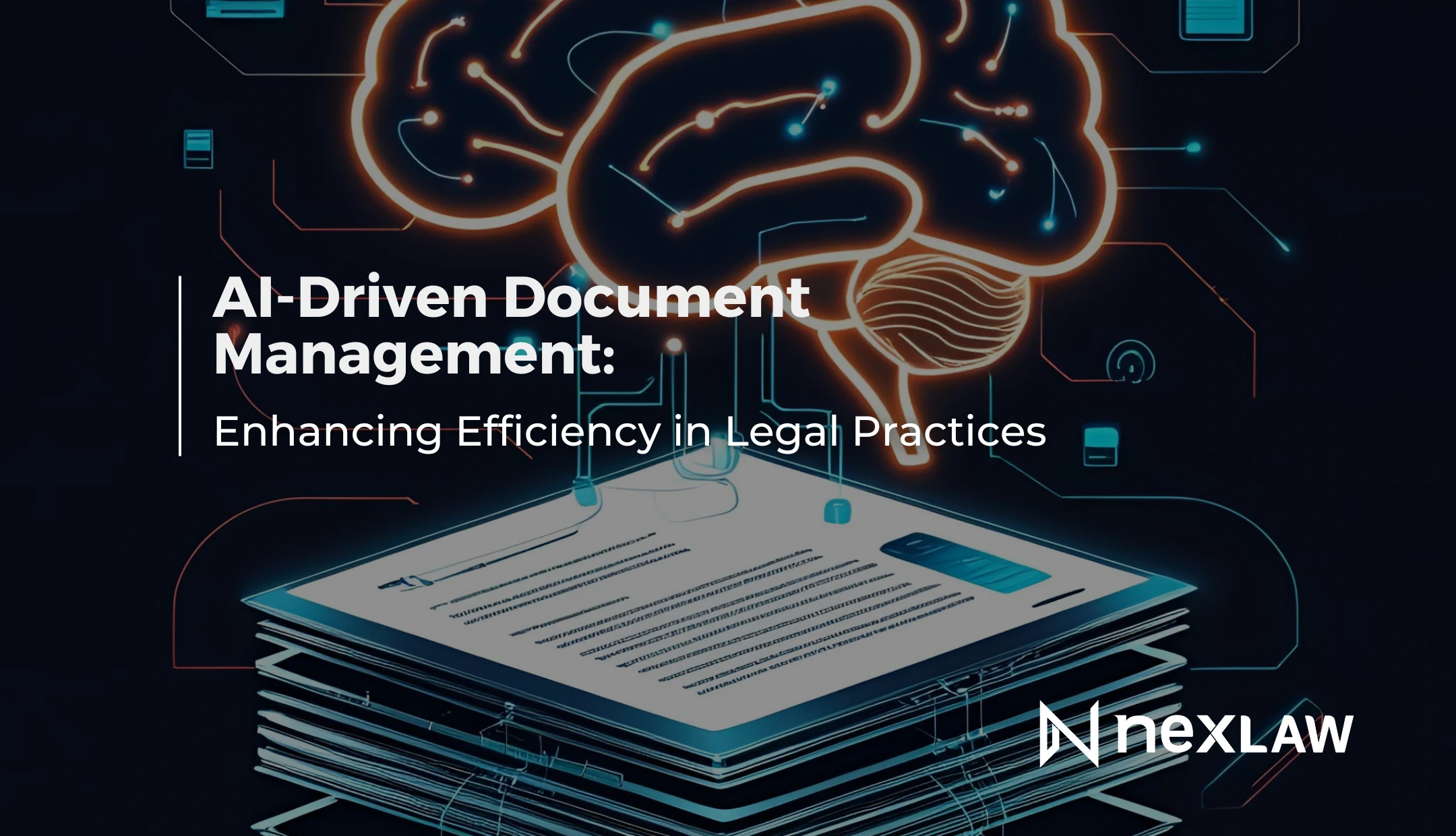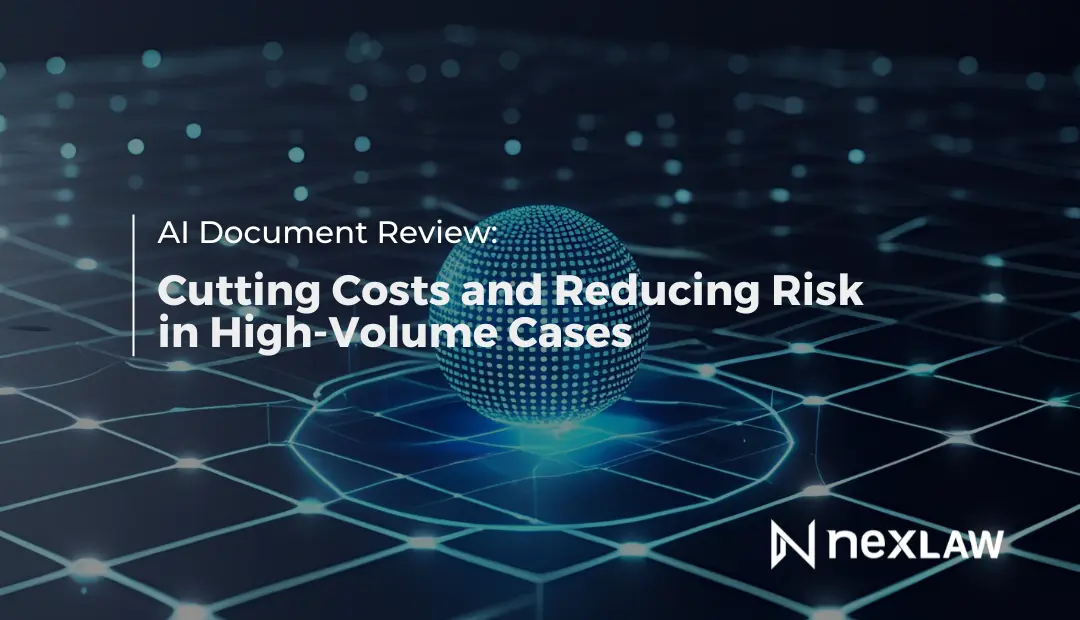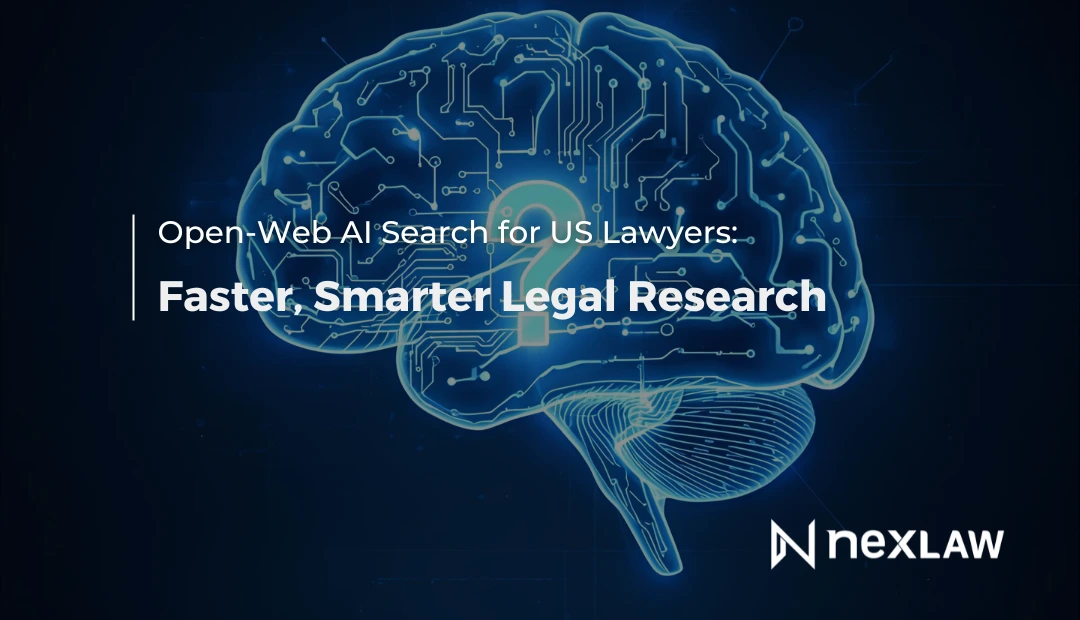The Hidden Benefits of AI Legal Document Management Systems for US Law Firms
In every litigation, arbitration, or transactional matter, documents form the backbone of the legal process. Case files, motions, pleadings, transcripts, contracts, exhibits, research memos—it’s all paper, PDF, or cloud-based data.
Unlock Legal Insights Instantly!
But here’s the challenge: most law firms still rely on outdated folder systems, fragmented storage platforms, or legacy document management systems (DMS) that weren’t built for modern AI-integrated workflows.
In 2025, US firms that implement AI-powered document management systems aren’t just getting better storage; they’re transforming how they work, think, and win cases.
Before vs. After: Document Management in the AI Era
| Function | Traditional DMS | AI-Powered DMS |
|---|---|---|
| Search by keyword | Basic filename and content match | Conceptual search and semantic filtering |
| Organizing files | Manual tagging and foldering | Auto-classification by case, issue, timeline |
| Version control | Manual tracking or flat storage | AI identifies most recent and relevant versions |
| Collaboration | Document email threads or downloads | Centralized annotations and shared access logs |
| Document insights | None | AI suggests strategic tags, gaps, or risks |
| Integration with legal workflow | Rare | Linked to research, drafting, trial prep |
How AI Document Management Actually Works
AI-enhanced DMS tools go far beyond digital storage. They apply machine learning, metadata extraction, and legal-specific tagging to turn documents into structured intelligence.
Here’s what they can do:
- Auto-categorize new uploads by case, issue, party, or stage
- Extract key entities (e.g., names, dates, citations) for indexing
- Track cross-references (e.g., this deposition supports this motion)
- Flag duplicates, outdated versions, or incomplete files
- Connect documents to timelines, arguments, or legal strategies
- Provide instant previews and summaries within the DMS dashboard
Why This Matters for Litigation
US litigators and their teams deal with high volumes of overlapping case files, often working on 10–20 active matters at once. AI DMS platforms help in several key areas:
1. No More Folder Guessing
Instead of navigating a maze of folders, lawyers can search for “emails mentioning termination and performance reviews from Q1 2023”—and the system delivers a curated list of relevant files.
2. Speed Up Drafting and Research
With documents categorized by argument, motion, or precedent, drafting becomes faster. AI pulls the right excerpts, summaries, or exhibits as you write.
3. Better Preparation for Depositions and Trial
Lawyers can view timelines enriched with linked files. Want to know what happened before the March 10 email from the VP of HR? The DMS already highlights prior complaints, memos, or policy shifts.
A Real-World Example
A Chicago-based employment litigation firm implemented an AI DMS across 28 active cases. Within the first 30 days:
- Reduced time spent searching for documents by 55%
- Identified 11 duplicate deposition transcripts that had been inconsistently annotated
- Discovered that one key exhibit had been left out of 3 trial binders—now flagged automatically across cases
- Cut associate onboarding time by 40% due to clearer file organization
The Risk of Not Adopting AI in Document Management
- Wasted Time: Attorneys spend 10–15% of their week just searching for files
- Duplicate Work: Lack of version control leads to redundant drafting and lost edits
- Compliance Risk: Inconsistent storage increases exposure in audits, discovery, and privilege reviews
- Lost Knowledge: When senior attorneys leave, their “mental map” of document history goes with them
Firms that don’t modernize risk slower output, weaker arguments, and lower team morale.
Checklist: What to Look for in an AI-Powered Legal DMS
- Search by concept, not just keyword
- Bulk upload with auto-classification
- Integration with legal research, case timelines, and drafting tools
- Auto-flagging of incomplete, duplicate, or stale files
- User access logs and edit trails for compliance
- Secure cloud-based or hybrid hosting with role-based permissions
- Export tools for trial prep, arbitration bundles, or client portals
What’s Next in AI Document Management
As adoption accelerates, legal AI document management systems are evolving into strategic hubs. Expect to see features like:
- Predictive file suggestions based on similar past cases
- Attorney-specific filters for faster collaboration and review
- Live document linking between filings, transcripts, and motions
- Knowledge graph views that visualize case relationships over time
Document management is no longer a back-office function. It is the backbone of litigation strategy.
Where NexLaw Adds Value
ChronoVault 2.0 reimagines document management by turning every file into actionable insight. With NexLaw’s platform, legal teams can:
- Upload any file from PDFs to emails and instantly tag by case, issue, and timeline
- Visualize documents on an interactive chronology alongside legal arguments
- Summarize lengthy materials using NeXa, NexLaw’s generative AI
- Export annotated files directly into TrialPrep, complete with redactions, exhibit numbers, and citations
No more digging through folders. No more missed context. Just faster access to the right information at the right time.
Let Your Documents Work for You
In litigation, time is limited and clarity is critical. With AI-powered document management, your team can move faster, reduce risk, and stay fully aligned from intake to trial.
Start your 3-day free trial of NexLaw today and discover how ChronoVault 2.0 helps you transform documents into strategy.
